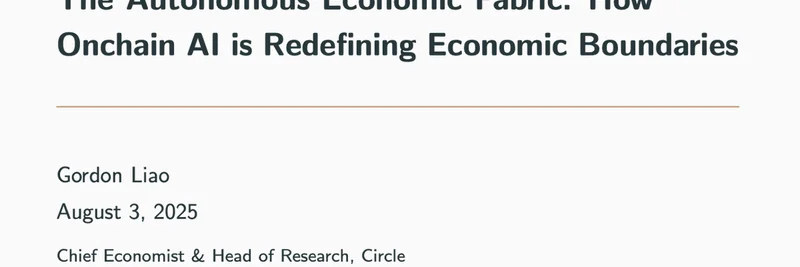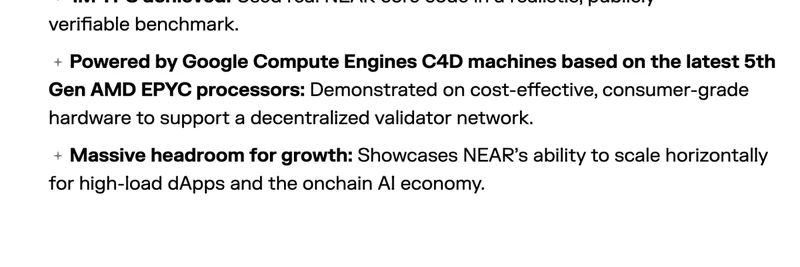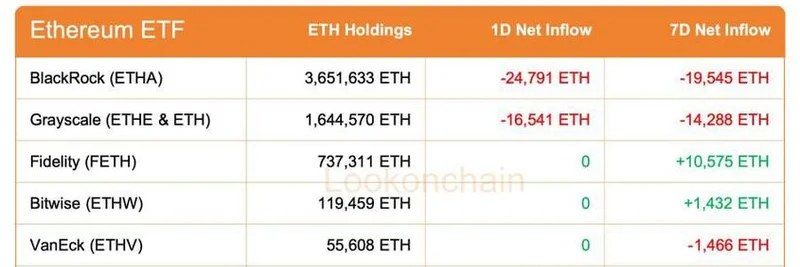Jeremy Allaire, the CEO of Circle – the company behind the popular stablecoin USDC – recently shared a thread on X that caught the eye of the crypto community. He quoted Gordon Liao, Circle's Chief Economist, emphasizing that "Onchain AI Agents = major new economic and organizational primitive." This isn't just buzz; it's a glimpse into how AI and blockchain are merging to reshape how we think about economies, firms, and even meme tokens.
Let's break it down. Liao's thread, based on his talk at Berkeley RDI, explores how onchain AI agents could disrupt the traditional "firm" as we know it. If you're new to this, an onchain AI agent is basically smart software that runs autonomously on a blockchain. It uses AI (like large language models) for decision-making and blockchain for secure, verifiable actions – think of it as a robot trader or manager that doesn't need human oversight for every step.
Why Firms Exist – And Why They Might Not Need To
Liao draws on economist Ronald Coase's 1937 theory: firms exist to cut down on "transaction costs" like searching for partners, negotiating deals, and enforcing contracts when markets are clunky. In a perfect world, markets would handle everything efficiently, but reality has friction.
Enter onchain AI agents. These bad boys slash those costs to near zero. Searching? Agents query onchain registries automatically. Bargaining? Handled by programmable smart contracts. Enforcement? Blockchain's atomic settlement and cryptographic proofs make it automatic. As Liao puts it, when transaction costs approach zero, the need for traditional firms weakens, paving the way for networks of specialized agents.
Solving Information Asymmetry – No More 'Lemons'
Remember the "market for lemons" from economist George Akerlof? It's when sellers know more about a product's quality than buyers, leading to bad deals and market breakdowns. In crypto, this could mean shady tokens or rugs. Onchain agents fix this with immutable histories (everything's auditable on the blockchain), AI-powered analysis of vast data, cryptographic proofs (like zero-knowledge to verify without revealing secrets), and incentives like staking in prediction markets.
This transparency could be huge for meme tokens, where hype often outpaces due diligence. Imagine AI agents scanning social sentiment, onchain activity, and offchain data to spot genuine viral hits versus pumps-and-dumps.
Towards 'Market Completeness' – Perfect Risk Management
Liao also touches on Arrow-Debreu securities – theoretical tools for hedging any future event. In practice, they're too costly to create. But onchain AI agents can act as automated market makers and analysts in prediction markets, making it cheap to bet on discrete outcomes. This pushes economies toward "completeness," where risks are perfectly transferable.
For meme token traders, this means better tools for hedging against volatility. An AI agent could automatically create and liquidity-provide for prediction markets on whether a meme like $DOGE will moon or flop based on upcoming events.
The Autonomous Economic Fabric
The endgame? An "autonomous economic fabric" – a web of hyper-specialized, composable agents handling complex workflows with radical efficiency. Humans shift to designing, governing, and overseeing these systems. Think DeFi strategies, supply chain management, or even decentralized insurance, all run by agents interacting seamlessly.
In the meme world, this could mean AI agents that auto-generate content, manage community airdrops, or even evolve tokenomics based on real-time feedback. Projects like those on Solana or Base could integrate agents to make meme launches more automated and fair.
Challenges Ahead
Of course, it's not all smooth sailing. Liao highlights open questions: securing agent-on-agent interactions, aligning AI goals with human values, balancing verifiability with computational complexity (the "verifiability trilemma"), solving oracle problems for offchain data, and navigating regulatory voids – like, what's the legal status of a sovereign AI agent?
For meme tokens, regulations could be a wildcard, especially if agents start handling funds autonomously.
Wrapping Up
Liao sums it up: Onchain AI agents attack transaction costs and information asymmetry, leading to an nascent autonomous economic fabric. Allaire's endorsement underscores its importance for crypto's future.
If you're into meme tokens, keep an eye on this tech. It could automate trading bots, sentiment analysis, or even meme creation itself, making the space more efficient and exciting. Check out the full slides here and the original thread on X. What do you think – ready for AI to take over your meme portfolio?



